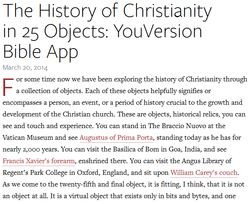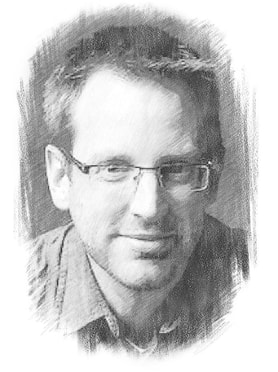Tim Challies

Tim Challies (born 1976) is a Canadian Reformed Baptist theologian, pastor, blogger, and author. In 2003, Challies started a blog on theology, book reviews, and social commentary. He has published books on theology, among other topics, such as how Christians should approach common issues like technology and pornography. He co-founded the publishing house Cruciform Press with Kevin Meath in 2010. In 2013, he became pastor at Grace Fellowship Church of Toronto, a Reformed Baptist church. R. Albert Mohler, Jr. has mentioned Challies as "one of the finest young evangelical thinkers of our day."
May 18, 2016: Wartburg 2016: Tim Challies, Along with Other Neo-Reformed and/or SBC Leaders, Have a Child Sex Abuse Problem
Enter Tim Challies…
Jan 5, 2015: Tim Challies: Challies.com: Good Doctrine Wins People, Not Arguments
Dec 31, 2014: Tim Challies: Challies.com: A Prayer For a New Year
Oct 16, 2014: Tim Challies: Challies.com: Don't Expect Unbelievers To Act Like Believers
July 7, 2014: The End Time: Sleepovers? To do or not to do? Tim Challies has some thoughts
Tim Challies wrote a good piece on whether to allow your child to sleep away overnight at a friend's house. He and his wife have their own reasons that he shared in a blog essay as to why they don't ever allow their young children to sleep overnight at another person's house.
July 3, 2014: One Place: Serious Dangers With the Internet Age - Interview with Tim Challies
Chainsaws can be helpful, but not in the hands of 2 year olds. Is the internet helpful or hurtful in the hands of your 18 year old son?
May 18, 2014: Thoughtlife: Is Rachel Held Evans’s Use of “God Herself” Biblically Faithful?
Grounding her attacks in an oft-cited instinct for justice, Evans has—by my count—mocked and opposed the following in just the last few years: The Council on Biblical Manhood & Womanhood, The Gospel Coalition, Together for the Gospel, The Ethics & Religious Liberty Commission, Southern Seminary, Desiring God Ministries, Al Mohler, John Piper, Russell Moore, Tim Challies, Mark Driscoll, myself, Denny Burk, Andrew Walker, Doug Wilson, Jared Wilson, and the list goes on.
Enter Tim Challies…
Jan 5, 2015: Tim Challies: Challies.com: Good Doctrine Wins People, Not Arguments
Dec 31, 2014: Tim Challies: Challies.com: A Prayer For a New Year
Oct 16, 2014: Tim Challies: Challies.com: Don't Expect Unbelievers To Act Like Believers
July 7, 2014: The End Time: Sleepovers? To do or not to do? Tim Challies has some thoughts
Tim Challies wrote a good piece on whether to allow your child to sleep away overnight at a friend's house. He and his wife have their own reasons that he shared in a blog essay as to why they don't ever allow their young children to sleep overnight at another person's house.
July 3, 2014: One Place: Serious Dangers With the Internet Age - Interview with Tim Challies
Chainsaws can be helpful, but not in the hands of 2 year olds. Is the internet helpful or hurtful in the hands of your 18 year old son?
May 18, 2014: Thoughtlife: Is Rachel Held Evans’s Use of “God Herself” Biblically Faithful?
Grounding her attacks in an oft-cited instinct for justice, Evans has—by my count—mocked and opposed the following in just the last few years: The Council on Biblical Manhood & Womanhood, The Gospel Coalition, Together for the Gospel, The Ethics & Religious Liberty Commission, Southern Seminary, Desiring God Ministries, Al Mohler, John Piper, Russell Moore, Tim Challies, Mark Driscoll, myself, Denny Burk, Andrew Walker, Doug Wilson, Jared Wilson, and the list goes on.

Z-NEWS NOTES: Mar 23, 2014: By early 2014, the Bible App had been installed on almost 125 million devices, with 49 million of those happening in 2013 alone. The app now offers 739 Bible versions that together represent more than 460 languages. Many of these versions are available in audio formats, and in 2013 users of the app listened to 595 million chapters of the Bible. The most-read chapter that year was Romans 8 and it was read, on average, four times every second through the entire year. The app has been used to complete an astonishing 15 million reading plans and, all together, its users have spent more than 84 billion minutes reading God’s Word. The Bible App represents a new era in the history of the church. The digital revolution is an entirely new phenomenon and it is changing everything. Most importantly, it is changing the way people read and experience God’s Word. (SOURCE: Tim Challies: "The History of Christianity in 25 Objects: YouVersion Bible App")
 Tim Challis
Tim Challis
In A New Kind of Christianity he insists that Christians have long been reading the Bible through the distorted lens of a Greco-Roman narrative. This narrative produced many false dualisms, an air of superiority, and a false distinction between those who were “in” and those who were “out.” These three marks of false narrative have so impacted our faith that we can hardly see past them. His book attempts to do that, and to reconstruct the Christian faith as it is meant to be.
Leading the way is his view of the Bible. He does not see the Bible as God’s inspired, inerrant, infallible, authoritative Word. He displays this, for example, in his interpretation of the account of Noah by saying, “a god who mandates an intentional supernatural disaster leading to unparalleled genocide is hardly worthy of belief, much less worship” (A New Kind of Christianity).
He goes on to say, “I’m recommending we read the Bible as an inspired library. This inspired library preserves, presents, and inspires an ongoing vigorous conversation with and about God, a living and vital civil argument into which we are all invited and through which God is revealed” (New Kind). After all, “revelation doesn’t simply happen in statements. It happens in conversations and arguments that take place within and among communities of people who share the same essential questions across generations. Revelation accumulates in the relationships, interactions, and interplay between statements.” He understands the Bible to be a slowly-evolving human understanding of God. “Scripture faithfully reveals the evolution of our ancestors’ best attempts to communicate their successive best understandings of God. As human capacity grows to conceive of a higher and wiser view of God, each new vision is faithfully preserved in Scripture like fossils in layers of sediment.” This is nothing less than theological liberalism in twenty-first century, post-modern clothing (which is why Gresham Machen’s Christianity and Liberalism offers a rebuttal, though it was written 90 years earlier). Like Fosdick and other liberals before him, McLaren has assumed authority over the Bible instead of placing himself under its authority. His understanding of Scripture frees him to see Christian doctrine as evolving, and himself as an instrument of this evolution. In this way he revisits and reinterprets whatever does not accord with modern sensibilities. He has denied the literal nature of hell along with its eternality; he has denied the substitutionary atonement of Jesus Christ; he has denied Jesus Christ as the only way to the Father; he has affirmed homosexuality as good and pleasing to God. And he continues to think and to write, meaning that his theological development is not yet complete.
--Tim Challis; The False Teachers: Brian McLaren May 1, 2014
Leading the way is his view of the Bible. He does not see the Bible as God’s inspired, inerrant, infallible, authoritative Word. He displays this, for example, in his interpretation of the account of Noah by saying, “a god who mandates an intentional supernatural disaster leading to unparalleled genocide is hardly worthy of belief, much less worship” (A New Kind of Christianity).
He goes on to say, “I’m recommending we read the Bible as an inspired library. This inspired library preserves, presents, and inspires an ongoing vigorous conversation with and about God, a living and vital civil argument into which we are all invited and through which God is revealed” (New Kind). After all, “revelation doesn’t simply happen in statements. It happens in conversations and arguments that take place within and among communities of people who share the same essential questions across generations. Revelation accumulates in the relationships, interactions, and interplay between statements.” He understands the Bible to be a slowly-evolving human understanding of God. “Scripture faithfully reveals the evolution of our ancestors’ best attempts to communicate their successive best understandings of God. As human capacity grows to conceive of a higher and wiser view of God, each new vision is faithfully preserved in Scripture like fossils in layers of sediment.” This is nothing less than theological liberalism in twenty-first century, post-modern clothing (which is why Gresham Machen’s Christianity and Liberalism offers a rebuttal, though it was written 90 years earlier). Like Fosdick and other liberals before him, McLaren has assumed authority over the Bible instead of placing himself under its authority. His understanding of Scripture frees him to see Christian doctrine as evolving, and himself as an instrument of this evolution. In this way he revisits and reinterprets whatever does not accord with modern sensibilities. He has denied the literal nature of hell along with its eternality; he has denied the substitutionary atonement of Jesus Christ; he has denied Jesus Christ as the only way to the Father; he has affirmed homosexuality as good and pleasing to God. And he continues to think and to write, meaning that his theological development is not yet complete.
--Tim Challis; The False Teachers: Brian McLaren May 1, 2014

